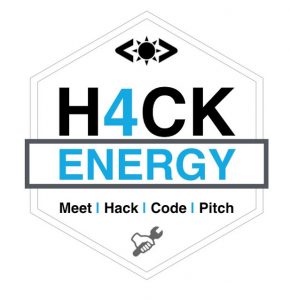Blockchain project wins Hackenergy 2016
 According to a jury of industry experts, the best idea at the 2016 Dutch international energy hackathon Hackenergy was a blockchain project called EcoCoin, said a Stichting Hackitarians press release CoinReport received.
According to a jury of industry experts, the best idea at the 2016 Dutch international energy hackathon Hackenergy was a blockchain project called EcoCoin, said a Stichting Hackitarians press release CoinReport received.
Stichting Hackitarians is a Dutch foundation that focuses on running innovation events and hackathons around such topics as Robotics, AI, Big Data, Health, Blockchain, Auto, TV, eCommerce and more. They have run events in London, San Francisco, Berlin, Brussels. Utrecht, and Groningen, and partnered with the likes of Google, Facebook, Twitter, IBM, ENGIE, GM, Amazon and other major brands.
Backed by Groningen’s IBM Client Innovation Center (CIC), the hackathon was sponsored by ENGIE Nederland, Energy Academy Europe and the City and Province of Groningen.
Hackers from Germany, Spain, USA, UK and the Netherlands attended the event, which was held in Groningen, a Hanseatic student city in the Northern Netherlands. At the end of the event, which brought together the challenges faced by the world in the transition of energy and the people who have the passion and ability to solve them, there were nine presentations in total. Participants gathered for 48 hours to engage in a energy-related problem solving pressure cooker and workshop.
“It was a great event, bringing the energy transition where it belongs: with people who want to work on our future, and a great way to connect knowledge, innovation and business. We look forward to welcoming new energy business ventures and to hosting a following edition!” stated Maurits Alberda, manager entrepreneurship & innovation at Energy Academy Europe.
The winning team comprised Brendon Geils (USA), Simon Appel (Germany) and Hodge Hodgson (Germany). The three hackers built a blockchain-powered peer-to-peer (P2P) energy trading system on the open source Hyperledger Blockchain, which is managed by the Linux Foundation and has IBM as a noteworthy partner.
The team spent the first day brainstorming and formulating the idea. They created EcoCoin in next 25 hours.
“The first night we spent the entire night brainstorming then by 11am the next day we conceived the idea,” stated Geils. “At that point we had 25 hours left to hack – and we did it in the next 25 hours.”
Hodgson said, “The use cases are various. One is that we can bring individual producers and consumers of energy, whether that be solar or be that from combined heat and power or whatever source together and the other one is that we can whitelabel the tool for intermediaries like the utilities in order to have their foot in the door and keep customer retention.”
In November, the team plans to participate in Ultrahack 2016 in Helsinki – an international hackathon league, one of the largest in the Nordics, with winners from more than a dozen other hackathons in Europe competing for a share of over one million euro in investment funds. Hacked in Groningen Hackathon League, in partnership with Futuretournaments Oy in Finland, will arrange the participation of the team, which will also receive a 1000 euro grant for travel, accommodation as well as tickets to attend the Slush festival after Ultrahack.
Richard Kastelein, from Stichting Hackitarians said about the team, “There is a lot of fresh innovation being done in the area around peer to peer energy trading, Blockchain, AI and Iot. And these digital nomads really grabbed onto the concept, ran with it and nailed it.”
Image via press release








